Posted on 1/30/2026
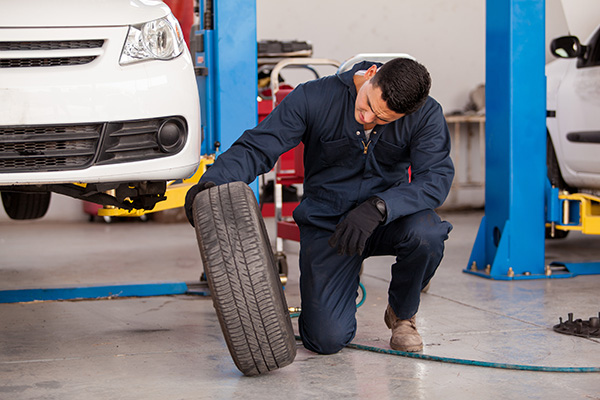
A spare tire feels like a clean escape hatch. You get the flat off the road, tighten the lugs, and tell yourself you will deal with the real fix later. The problem is, a spare changes more than most drivers realize, and the risks tend to build quietly with every mile. If you have been rolling around on one longer than you planned, there are a few reasons to take it seriously before it turns into a second problem. Common Reasons Drivers End Up On The Spare Most spare-tire situations start with something simple, a nail in the tread, a pothole hit, or a slow leak you did not notice until the tire was too low. Sometimes the tire looks fine from the outside, but the sidewall is damaged, and it cannot safely hold pressure anymore. Other times, the tire is repairable, but you are stuck on the shoulder, and the spare is the fastest way to get moving. The issue is not using the spare. The issue is treating it like a normal tire for normal driving, especially at highway speed ... read more
Posted on 12/19/2025

Holiday trips have a way of piling on stress before you even leave the driveway. Luggage, kids, traffic, and winter weather all compete for your attention, so it is easy to assume the car will be fine because it “felt okay last week.” A quick, focused check on a few key systems before a long drive can make the difference between a smooth trip and waiting on the shoulder for a tow truck. 1. Check Tire Tread, Pressure, and Age Tires are the only part of the car that actually touches the road, so they set the tone for the entire trip. Look for even tread across the full width of each tire and make sure the wear bars in the grooves are not close to flush with the tread. Uneven wear on the inside or outside edges can hint at alignment or suspension issues that will show up as vibration or poor grip at highway speed. Use a good gauge to set pressures to the number ... read more
Posted on 11/28/2025
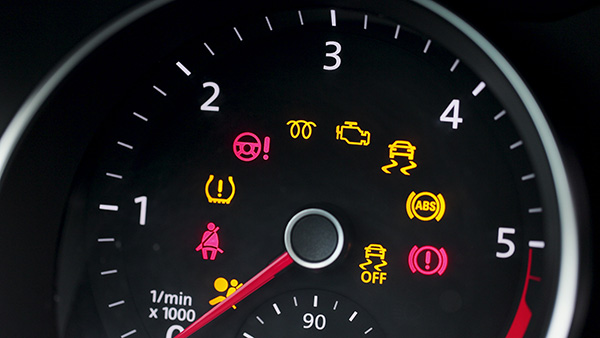
A sudden light on your Nissan dashboard can raise your heart rate in seconds. Some icons ask for a simple check, others mean pull over now. Knowing which is which keeps you calm, protects the engine, and prevents small problems from turning into big repairs. Here are the five lights Nissan owners see most often and what to do when they appear. 1. Check Engine Light This amber engine icon covers anything from a loose gas cap to a misfire. If the light is steady and the car runs normally, reduce heavy throttle and plan a diagnostic soon. If it flashes, the engine is misfiring. Ease off, avoid high loads, and do not delay service. A flashing light can cause the catalytic converter to overheat and potentially damage it. Noting whether it happens on hills, at certain speeds, or after a fuel stop gives your technician a head start. 2. Battery Or Charging System Light A red battery symbol means the alternator is not charging or the voltage is dropping ... read more
Posted on 10/31/2025
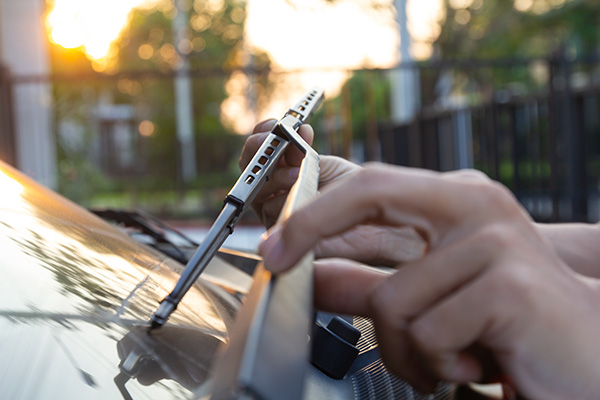
When you're thinking about car maintenance, windshield wipers probably don’t top your list. They’re small, simple, and quietly do their job until they don’t. But once visibility drops in a sudden downpour, failing wipers can turn into a real hazard. Knowing when to replace them isn’t just about convenience, it’s about keeping yourself and others safe on the road. How Windshield Wipers Work Wiper blades are made from flexible rubber or silicone and are attached to mechanical arms that sweep across your windshield to clear rain, snow, and road debris. The wiper motor and linkages control the motion, but it’s the rubber edge that makes direct contact with the glass. Over time, exposure to sunlight, heat, cold, and road grime wears this rubber down, causing it to crack, split, or harden. Once the blade no longer sits flush against the glass or begins to skip or smear, it’s no longer doing its job. If you can’t see clea ... read more
Posted on 9/26/2025
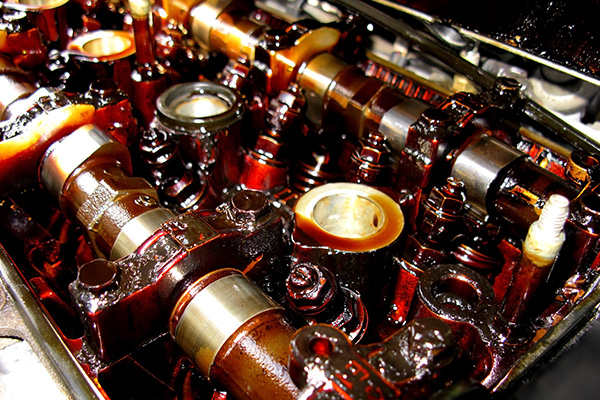
It’s easy to put off an oil change when life gets busy. Maybe you meant to go last weekend but didn’t get the chance. Maybe you’ve gone a few hundred or a few thousand miles over the recommended interval and haven’t noticed any problems. The truth is, the effects of skipping oil changes aren’t always immediate, but the damage builds over time, and once it sets in, it can shorten the life of your engine. Let’s take a closer look at what happens when oil changes are delayed and why regular service is one of the simplest and most effective ways to protect your vehicle. Why Oil Is So Important Motor oil does more than just keep your engine parts slick. It also: Reduces friction between fast-moving metal parts Helps dissipate heat generated by the engine Traps dirt, debris, and metal particles Prevents corrosion inside the engine Fresh oil does all of these things well, but as it ages, it breaks down and becomes less effective. Ove ... read more
Posted on 8/29/2025
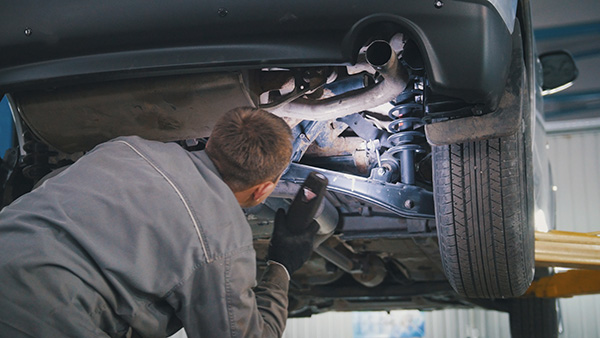
When driving on a straight road, your car should track smoothly in its lane with minimal steering correction. If it consistently pulls or drifts to one side, something is out of alignment—literally or mechanically. A drifting car is more than just an annoyance. It can signal a problem that affects tire wear, handling, and even safety. Knowing the common causes of drifting will help you address the issue before it leads to bigger, more expensive repairs. Wheel Alignment Problems One of the most frequent causes of drifting is improper wheel alignment. Alignment refers to the precise angles at which your tires meet the road. When those angles are off, the car can pull to one side, especially at higher speeds. Hitting potholes, curbs, or road debris can knock your alignment out of spec. Even normal driving over time can cause alignment to shift slightly. If your car drifts and you also notice uneven tire wear or a crooked steering wheel, an alignment check should ... read more
Posted on 7/25/2025
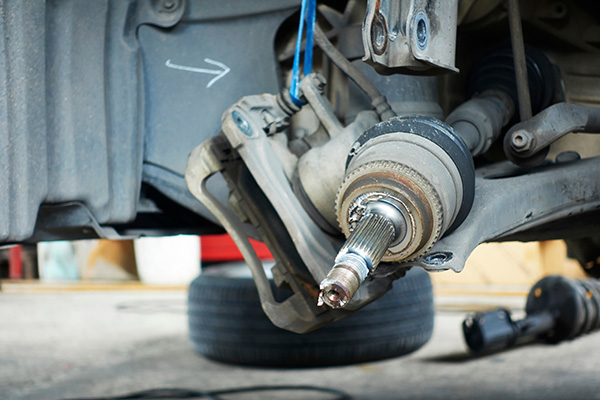
Your vehicle’s constant velocity (CV) joints play a crucial role in delivering smooth power to the wheels, allowing your car to move and turn efficiently. CV joints are most commonly found in front-wheel-drive vehicles, but they’re also used in many all-wheel-drive and some rear-wheel-drive setups. Because they handle the transfer of torque while accommodating up-and-down suspension movement and steering, CV joints work hard every time you drive. Recognizing the signs of a failing CV joint is vital to avoid a sudden breakdown and expensive repairs. Clicking or Popping Noises When Turning One of the most common and noticeable symptoms of a failing CV joint is a clicking or popping sound when turning. This usually occurs when making sharp turns, especially at lower speeds. These noises happen because the CV joint’s protective boot is likely torn or damaged, allowing grease to escape and contaminants to enter. Without proper lubrication, the joint&rsq ... read more
Posted on 6/27/2025
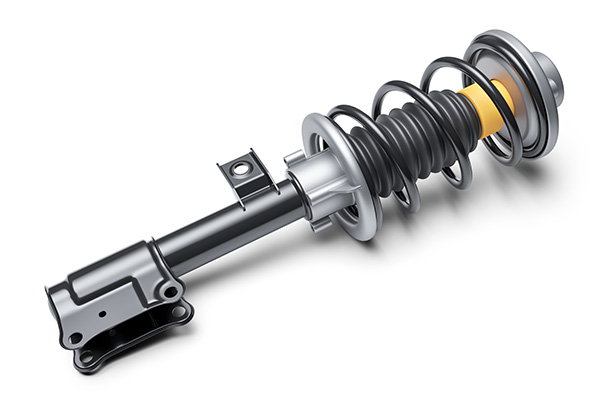
Most drivers don’t think much about their car’s suspension until something starts to feel off. But struts and shocks play a huge role in both comfort and safety. They help control how your car handles bumps, corners, and braking, and when they start to wear out, your vehicle can become unpredictable on the road. Worn shocks and struts don’t fail overnight. Instead, they deteriorate slowly, often without obvious warning signs. Recognizing the early symptoms is key to staying safe and avoiding additional wear on your tires, brakes, and steering components. What Shocks and Struts Do Struts and shocks are two types of suspension components, and while they’re often mentioned together, they’re not identical. Shocks (short for shock absorbers) are standalone components that help control the movement of the suspension and keep your tires in contact ... read more
Posted on 5/30/2025

You hear it all the time: don’t text and drive. But despite the warnings, many drivers still glance at their phones at stoplights, during traffic jams, or even while cruising down the highway. It might seem harmless at the moment, especially if it's just a quick reply or checking a notification. But that one second of distraction is enough to change everything. Distracted driving is one of the leading causes of accidents on the road today, and smartphone use is a major contributor. Whether it’s texting, scrolling, or even checking directions, taking your eyes off the road can cost you far more than a few seconds of attention. How Much Can One Glance Really Hurt Looking at your phone for five seconds while driving at 55 mph is like driving the length of a football field blindfolded. That’s not just a catchy statistic—it’s the reality of how much ground your vehicle can cover in the time it takes to read a text. You’re not just ... read more
Posted on 4/25/2025
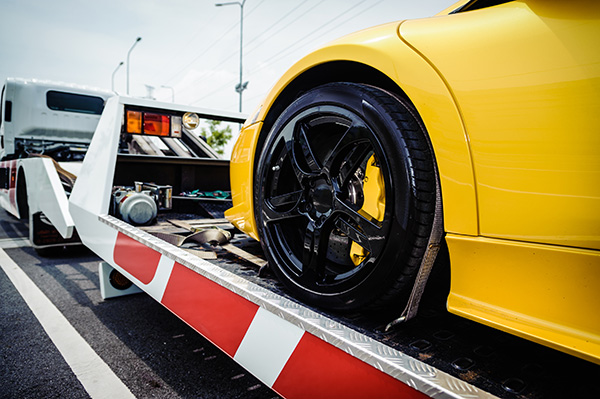
When your car suddenly dies on the side of the road, there’s a lot running through your mind. Whether it’s an engine failure, flat tire, or electrical issue, your first thought is probably: how do I safely get it to a shop? Towing might seem like the easy part—but preparing your vehicle for a safe, damage-free tow is more important than most drivers realize. A little preparation—especially if you’re stuck in traffic or on the highway—can go a long way in avoiding further damage, keeping you safe, and making the towing process smoother for everyone involved. Stay Calm and Get to a Safe Spot First The first step is to move your car out of traffic if possible. Use your hazard lights and pull over to the right shoulder or a parking lot. If the vehicle won’t move under its own power, don’t try to force it—turn the hazards on and stay inside unless it’s unsafe to do so. Being visible is key. Keep the doors close ... read more